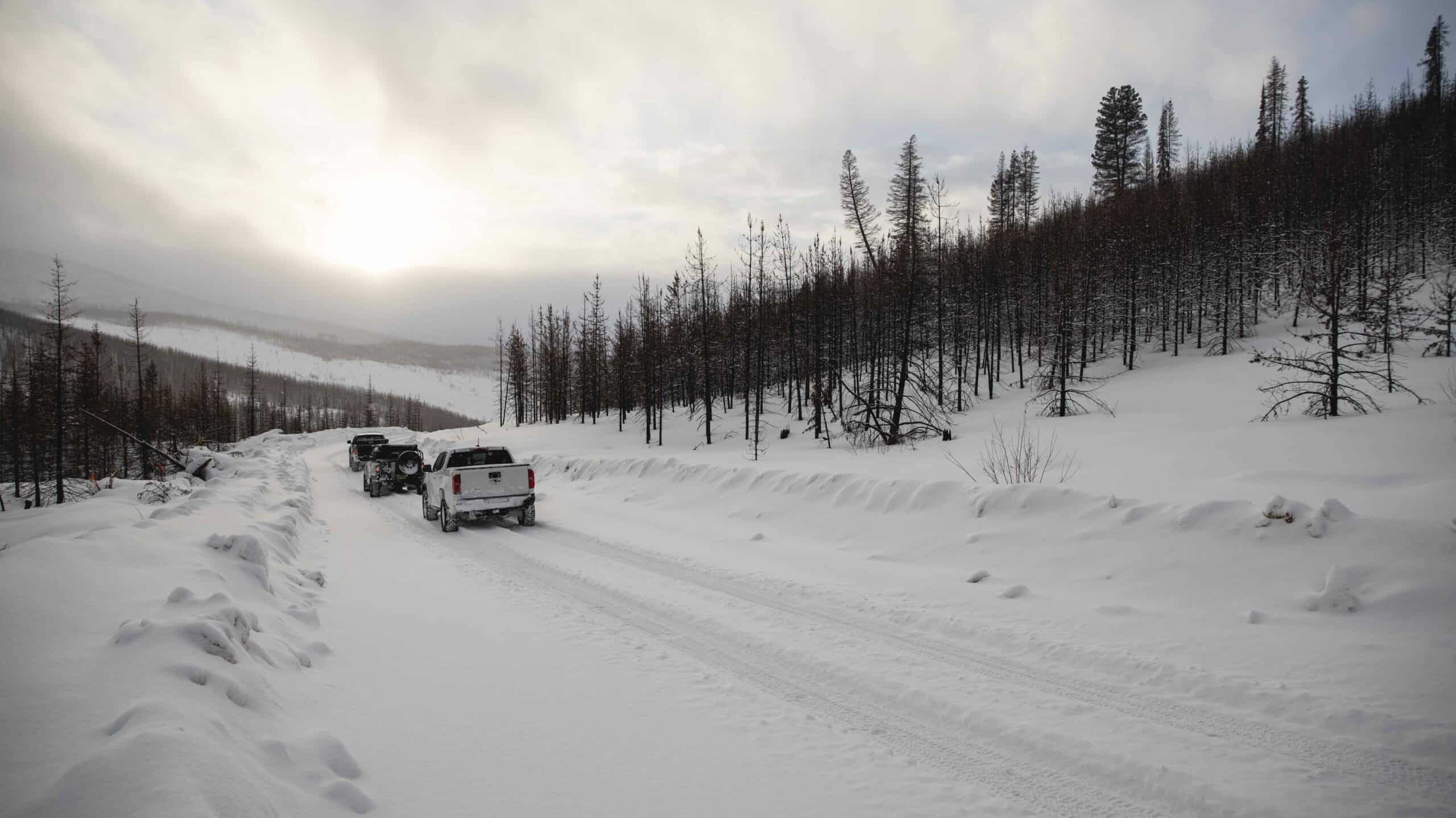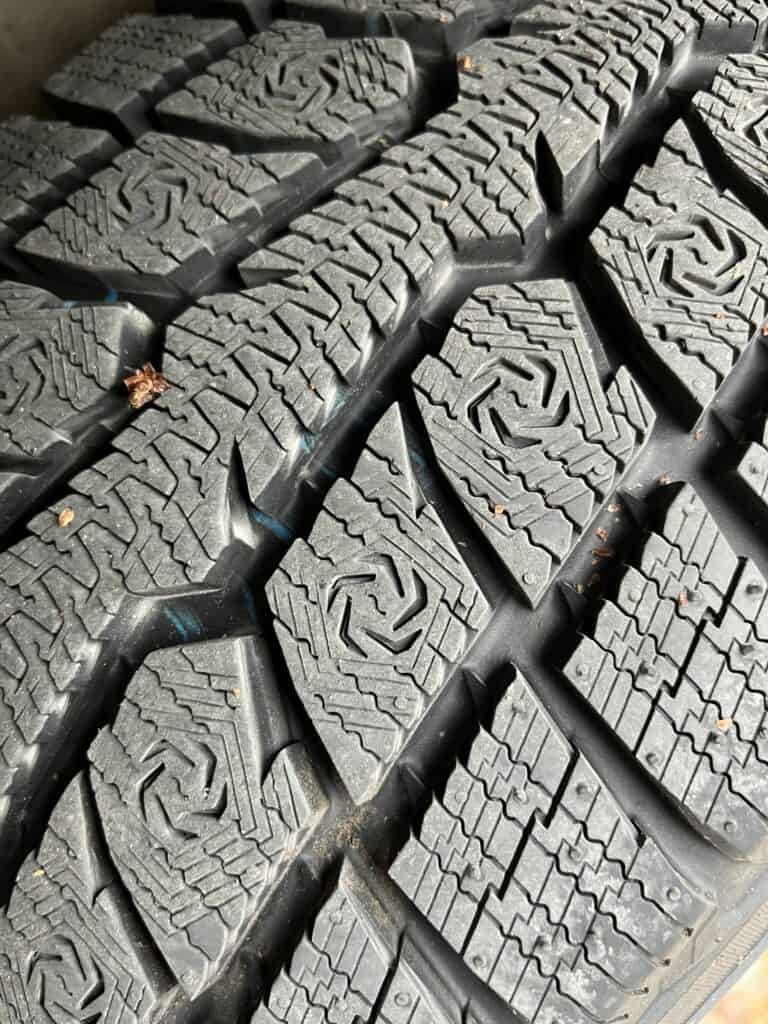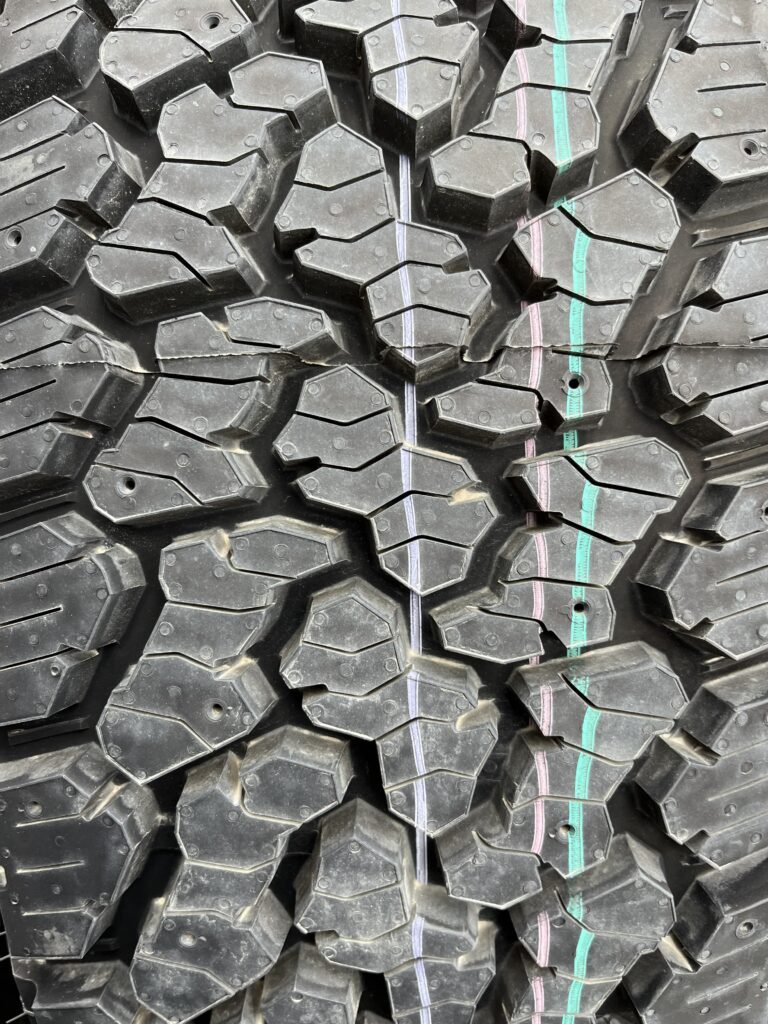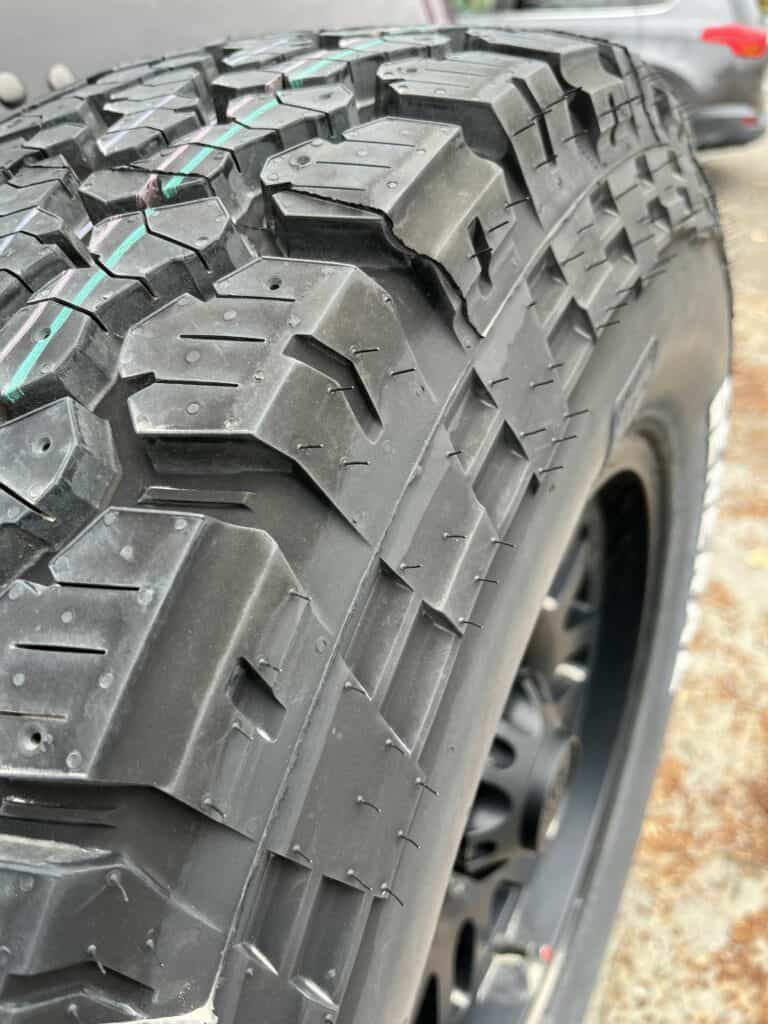
Living in a place like the South Coast of BC in Canada, we typically have very mild winters. While the rest of Canada is getting nuked with snow, we are normally stuck under a rain cloud for our winter. We receive fairly consistent snow in the nearby mountains and do get at least a week’s worth of snow at some point during the winter, but that quickly turns back to rain and ice on the roads. So many people question whether winter tires are really needed.
On average winter tires are safer than all-terrain tires. While most other tires harden up in cold weather, winter tires remain pliable which provides better grip in slick conditions. Winter tires are covered in sipes which allow for better dispersion of water that comes in contact with the tread.
But Isaac, my all-terrain tire has the little mountain and snowflake on them, doesn’t that mean they are winter rated? Yes, yes it does mean that they are rated to drive in the wintertime. However, it doesn’t make them more competent than a dedicated winter tire. Except for one specific case – deep snow. Read on to learn the differences between a winter tire and an all-terrain, and why all-terrains are a better choice when driving in deeper snow, and a worse choice when driving on compact snow.
Pros and Cons of Winter Tires Vs All-Terrain Tires:
The following are the pros and cons lists for winter tires and all-terrain tires, keeping winter driving in mind.
Winter Tires, Pros:
- Max traction under 7 degrees Celcius (45 Fahrenheit)
- Grips well on compact snow
- Well siped for better traction in wet conditions
All-Terrain Tires, Pros:
- Perform well in deeper snow
- Designed to tackle every type of terrain, including mud, rock, and everyday pavement driving
- Decent siping for traction in wet conditions
Winter Tires, Cons:
- Do not perform as well in deep snow
- Wear down quicker in warmer temperatures. 7 Celcius is the benchmark
All-Terrain Tires, Cons:
- Harden up under 7 Celcius causing less traction, even on dry roads
- Do not perform as well on compact snow
- Not all A/T Tires have the 3 Peak Snow rating.
Why Are Winter Tires Better In Winter Conditions?
There are two main reasons that winter tires are better in winter conditions than all other types of tires, sipes, and tire compounds.
Starting with the sipes on the tire. Sipes are small slits that are sliced into your tire’s tread blocks. They allow for better movement of water when driving on wet pavement which lessens the chance of hydroplaning. As well as act like claws when driving on hardpacked snow or ice. As the tire rolls and comes in contact with the pavement, the sipes open up and grab the ground beneath them.
The tire compound that the manufacturer uses is like their secret formula. No tire is made solely from rubber anymore. Plain rubber gets very brittle and hard when it’s cold out, and it gets much too soft when it is hot out. Things such as synthetic rubber, oil, and silica are used. As well as carbon black which helps the tire avoid building up an electrostatic charge and keep the heat down.
The compound that a winter tire uses is designed to remain pliable in cold temperatures. Having a tire that remains softer in cold temperatures means you will have a more consistent grip.
While the sipes and compound are arguably the most important part of the winter tire design, tread pattern also comes into play. Tires such as the Toyo Observe GSi-6 have a jagged edge along each tread block to further the grip and traction on slick surfaces.

Are All-Terrain Tires Safe To Use In The Winter?
While winter tires are the recommended choice when it comes to driving in the wintertime, all-terrain tires are still safe to use during the winter. However, there are things to keep in mind.
Because the compound of the tire is naturally harder than a winter tire, you will have less traction on cold surfaces. The tire will not mold to the ground beneath it as well as it would come warmer temperatures.
Most all-terrain tires on the market now have fairly good siping, but they still do not compare to a dedicated winter tire. This means they will manage the wet roads as well and heighten the chance of hydroplaning or sliding on compact snow. Keep in mind this is in comparison to a winter tire. If this was a comparison of an all-terrain vs a mud-terrain, the all-terrain would be the shining star in the wet and slick conditions.
Where all-terrain tires beat out winter tires is driving in deeper snow. Because all-terrain tires have deeper tread patterns and more aggressive sidewalls, they are able to pull their way through snow much easier.
If you do opt to drive all winter with all-terrain tires, airing your tires down slightly is recommended to widen your tire’s contact patch and in turn, increase traction. If you are “snow wheeling,” and driving in deeper snow, substantially airing your tires down is key. If you have regular steel or alloy wheels I wouldn’t recommend going below 15 psi, but if you had beadlocks you could go down into single-digit numbers.


Is Studding Your Tires Worth It?
If you live somewhere you receive constant snowfall throughout the winter and also love to head out snow wheeling, then studding your All-Terrain tires would most likely be a wise choice. Keep in mind that not all tires are studdable. When purchasing your tires be sure to do your research on which tires you can stud.
One important note as well, studding your tires will improve your traction in compact snow and ice, but will not help in deep snow. Using myself as an example again – the Grabber ATx tires I have are studdable. However, most of the snow I encounter during the winter is when I’m in the backcountry. If I were to stud my tires, and then proceed to drive around mostly on pavement for the 4 winter months, I would just dull the studs out rendering them useless.
In my opinion, studs on winter tires or all-terrain tires are 100% worth it if you live somewhere that has snow on the roadways for a substantial part of the year. If you live in a milder climate, and your vehicle mainly sees snow only when going off-road, then I would recommend not spending the extra money to get your tires studded. Use that extra money to go out and purchase a good set of chains. Chains will limit your speed, but they can be a literal lifesaver.
Which Type of Tire Is Best For You?
When choosing whether you want to run an all-terrain or winter tire throughout the winter season, you must take your area’s climate and your desired use into consideration.
For myself, living near Vancouver, Canada, I opt to run my General Grabber ATx all year round. They are an aggressive all-terrain that handles the bit of snow we get well. I also like heading out camping and 4x4ing during the winter, so running all-terrain tires is the right move for me.
With that said, when commuting I do drive with more caution, as I know I am more likely to slide and my braking distance is increased during the winter. When I daily drove a Honda Civic, I ran winter tires. When it came to driving in snowy road conditions, I actually preferred it over my truck. Again though, because I want the off-road performance in the winter, I choose to keep my all-terrains on.
As an alternate example, I have a friend who lives in the interior of British Columbia and they have snow for around 4 months of the year. The roads in their city become compact with snow and ice. They also run the General Grabber ATx on their vehicle, but choose to use winter tires come the snowy season. They don’t head off-road during the winter and live at the top of a large hill. So having the best on-road performance in the winter is most important to them.
If you are unsure which type of tire is best for you, I recommend heading down to your local tire shop and telling them what your exact needs are.